

Among the most challenging transitions in early childhood is when children start staying away from their parents for longer periods of time than they have been used to till then. For Educators caring for babies and toddlers who are having a particularly bad time leaving their parents, the following article provides information on What Is Separation Anxiety, Factors that Can Cause Separation Anxiety, Separation Anxiety Signs, How To Manage Separation Anxiety When To Seek Help and more.
Children need safe and positive environments to learn and grow. To ensure this, services and educators need to ensure effective supervision at all times. The following article provides information on the different aspects of supervision, ranging from regulatory requirements and principles to practice strategies.
Aggression is a type of behaviour that is triggered by the intention of causing harm to another person who wishes to avoid that harm. Violence is an extreme subtype of aggression, a physical behaviour with the intention of permanently injuring another person. The following article will provide information on What Is Aggressive Behaviour, Prevention Strategies, Intervention Strategies and more.
Effective communication can be understood as communication between two or more persons wherein the intended message is successfully delivered, received and understood. Since so much of the work in an early childhood education and care setting consists of listening, understanding and exchanging insights, effective communication makes up one of the key tools in the skill set for anyone running and/or leading a centre. The following article provides information on How Effective Communication Help, Basic Steps Of Effective Communication, Modes Of Communication, Difficult Conversations and more.
Critical reflection has been explained in the EYLF as reflective practices that focus on implications for equity and social justice. In the context of childcare, it involves examining and analysing events, experiences and practices from a range of perspectives to inform future planning and decision-making. The following article provides information on Engaging In Critical Reflections, Questions For Critical Reflections, Practicing Critical Reflections and more.
Redirection is among the most effective proactive behaviour guidance methods in young children. It consists of simple cues or instructions that prevent problem behaviours from escalating and help children to be more engaged in their learning. The following article provides information on How Redirecting Behaviour Help, Types Of Redirecting Behaviour, Redirecting Behaviour Strategies and more.
Emotional or physical distress can add to the challenges of caring for children in a service setting. Toddlers' brains are not yet developed to rationalize situations and regulate the emotions they feel. The following article provides strategies you can use to comfort and soothe a toddler.
Staff appraisals are key to maintaining high standards in early childhood services. The following article provides information on What Is A Staff Appraisal, Components Of Staff Appraisal includes Key Performance Indicators, Preparing For Meetings, Mid Year Review and more.
Mixed-age groups refer to settings that bring together children aged three to five years old. Since children at different points in this age range may have different skills and abilities, working with mixed age groups may require service providers and educators to be more intentional in designing practices that meet the learning needs of all children. The following provides information on the Benefits Of Mixed Age Groups, Strategies For Working With Mixed Age Groups and more.
On Thursday 21st July, Dr Mary Hall will be presenting a free webinar on Key Fundamentals Of Supervision: Practical Strategies For Keeping Children Safe.
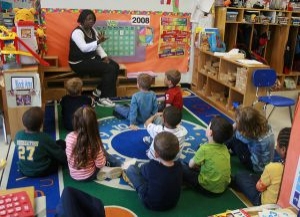 Working as a childcare professional can be a challenge especially when dealing with behavioural problems which may arise. The techniques we use when dealing with… Read More
Working as a childcare professional can be a challenge especially when dealing with behavioural problems which may arise. The techniques we use when dealing with… Read More
 There are different types of behaviour that children can display and sometimes it can be hard to manage, especially if a child is having behavioural… Read More
There are different types of behaviour that children can display and sometimes it can be hard to manage, especially if a child is having behavioural… Read More
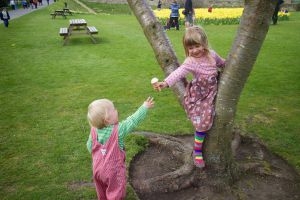 As a parent, your behavioural expectations of your child can be higher than what is actually developmentally appropriate for your child's age.
Read More
As a parent, your behavioural expectations of your child can be higher than what is actually developmentally appropriate for your child's age.
Read More
 As Educators, there will be many instances where you will need to write about a child's behaviour. For a behaviour management plan, assessments, half-yearly or… Read More
As Educators, there will be many instances where you will need to write about a child's behaviour. For a behaviour management plan, assessments, half-yearly or… Read More
 As Educators when communicating with Parents (through verbal or non-verbal communication), there will be times where we need to discuss issues or concerns that may… Read More
As Educators when communicating with Parents (through verbal or non-verbal communication), there will be times where we need to discuss issues or concerns that may… Read More
 Challenging Behaviour is when a child does something that hurts themselves and/or other people.
Read More
Challenging Behaviour is when a child does something that hurts themselves and/or other people.
Read More
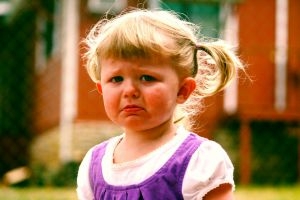 As part of your child's development it is normal for your child to have anxiety and fears. A baby commonly shows a fearful sign to… Read More
As part of your child's development it is normal for your child to have anxiety and fears. A baby commonly shows a fearful sign to… Read More
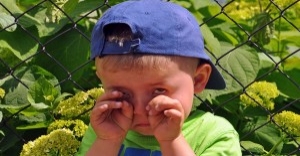 It's always difficult to bring up behavioural issues with parents, it can be nerve wrecking to tell a parent that their child misbehaves but that… Read More
It's always difficult to bring up behavioural issues with parents, it can be nerve wrecking to tell a parent that their child misbehaves but that… Read More
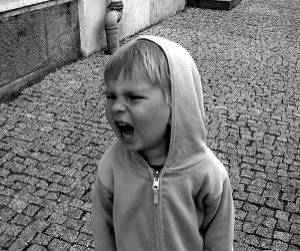 All children deal with anger on a daily basis. Thinking about it as a child, there is a lot to be angry about. Elder people… Read More
All children deal with anger on a daily basis. Thinking about it as a child, there is a lot to be angry about. Elder people… Read More
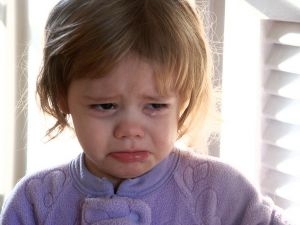 It is important to understand that your child behaviour problems could not just be from attention seeking. There are many factors to take into consideration… Read More
It is important to understand that your child behaviour problems could not just be from attention seeking. There are many factors to take into consideration… Read More
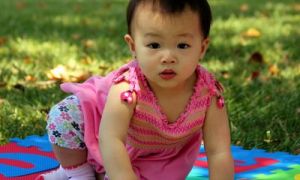
Babies will begin to find new ways of moving themselves around the house and has...
See more...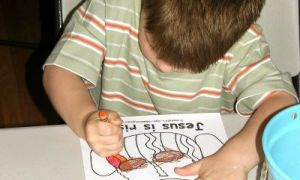
Your child is about to enter one of the most important parts of their lives...
See more...
Consequences are one of the most effective principles of behaviour management in ECEC settings, as...
See more...© 2009-2025 Aussie Childcare Network Pty Ltd. All Rights Reserved.

